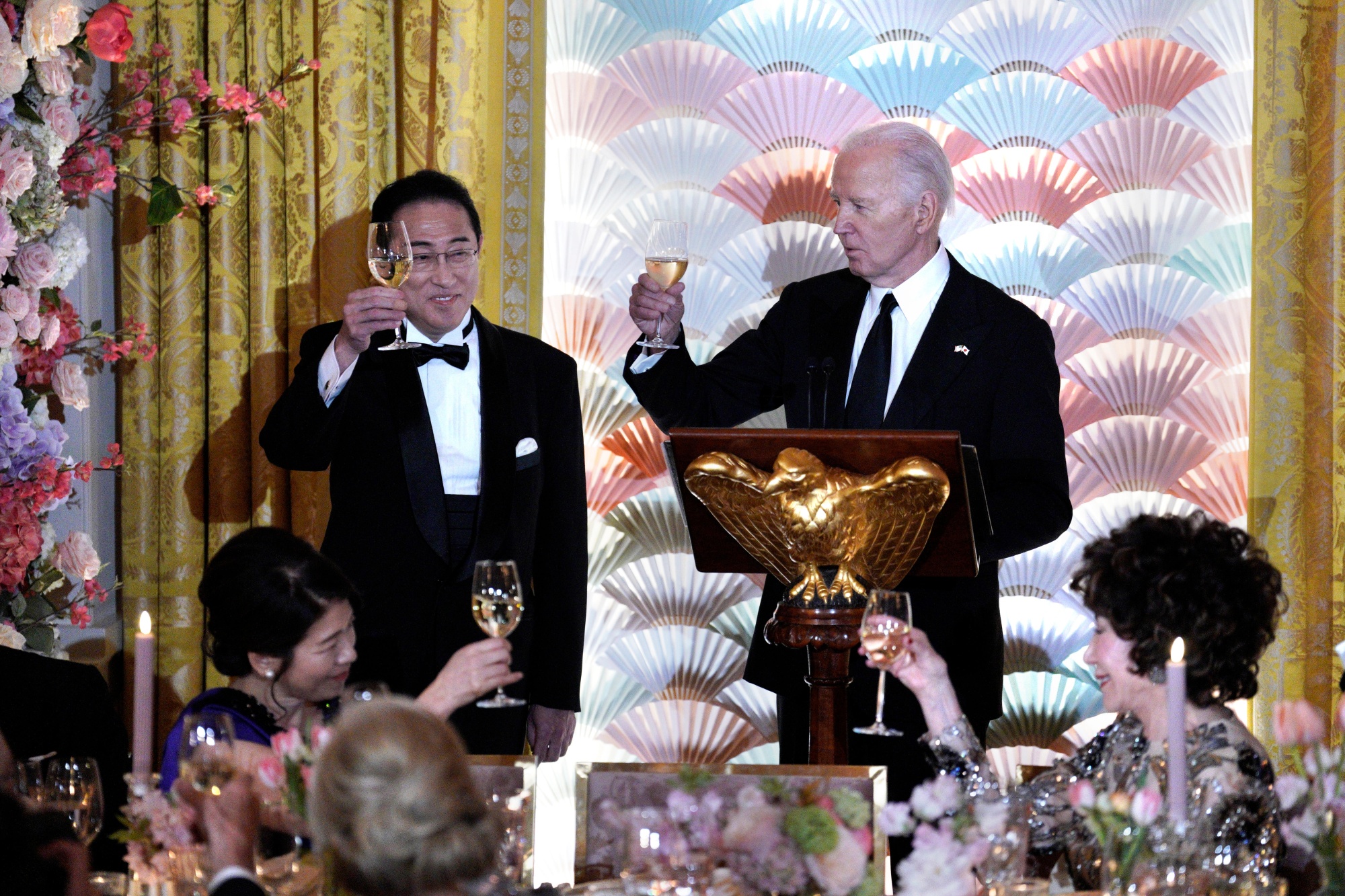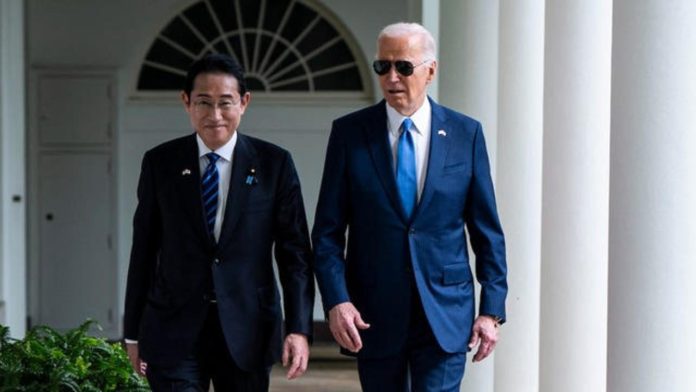At a special dinner at the White House, there were beautiful glass butterflies and colorful spring flowers. They were there to honor Japan, a country that is a friend of the United States. But today, President Biden will talk with Japan’s Prime Minister, Fumio Kishida, about serious things like defense agreements. Both leaders are thinking about China’s actions in the South China Sea, which have been aggressive.
Today, there will be a meeting at the White House. President Biden, Prime Minister Kishida, and President Ferdinand Marcos Jr. from the Philippines will be there. This meeting is important because it’s the first time they are meeting together.

It’s also meant to show that the United States wants to support its friends in the Indo-Pacific region. The people who help the president make decisions say that making the military bond stronger is a big improvement to the agreement between the United States and Japan, which was made in 1960.

President Biden knows that some countries, like Japan, are not sure what will happen with U.S. policies if Donald Trump becomes president again. So, he wants to make sure that the friendship between the United States and Japan stays strong. He wants this before the election in November. This is what The New York Times says.
President Biden says that the relationship between the United States and Japan is very important. He calls it a “cornerstone of peace, security, prosperity.”
